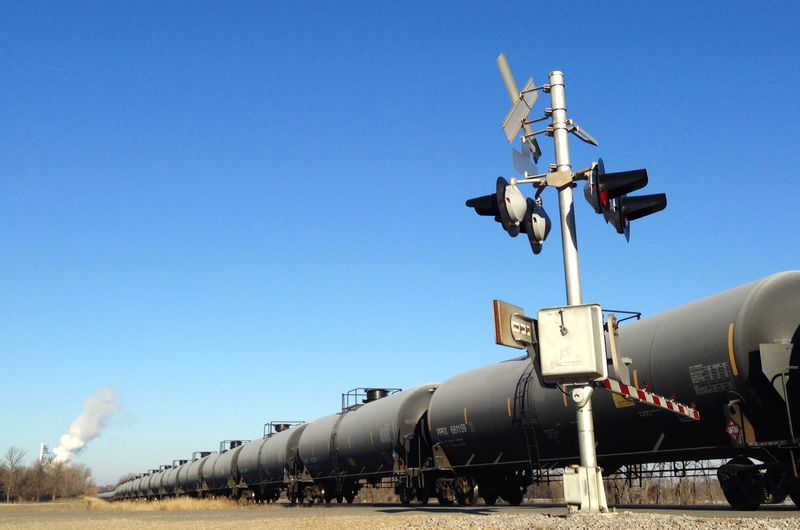By Shariq Khan
NEW YORK (Reuters) -Oil prices fell to their lowest level in seven weeks on Thursday, closely mixed and pressured by weaker global demand, rising inventories and fading hopes for a quick U.S. interest rate cut.
U.S. West Texas Intermediate crude futures fell 5 cents to settle at $78.95 a barrel, the lowest since March 12. Global benchmark futures also hit their lowest level since early March, then bounced off session lows to settle 23 cents, or 0.3%, higher at $83.67. a ton.
Both benchmarks closed below their 200-day moving average, which is the key technical indicator of a bear market shift in prices, according to StoneX oil analyst Alex Hodes.
Oil investors have grown concerned about a possible economic slowdown in the US as the war between Israel and Hamas continues without major impact on Middle East oil supplies.
Oil prices fell more than 3% on Wednesday after the US government reported a surprise rise in crude stocks and the Fed left interest rates unchanged citing persistent inflation.
“Now it’s all a demand story as the risk premium from last month’s Middle East tensions turns into residual risk,” said Gaurav Sharma, an independent oil analyst in London.
A slump in global diesel demand is also fueling concerns about slowing oil demand growth in major economies. Gasoil inventories, including diesel, rose more than 3% from week to Thursday in the European refining and storage hub Amsterdam-Rotterdam-Antwerp, data from consultancy Insights Global showed.
Remove ads
.
Diesel demand at the U.S. Gulf Coast refining center, known as PADD 3, is estimated to be below the previous three-year range, Hodes said. “The bearish kicker is that even with this inventory build, distillate production in PADD 3 is at its lowest level since early March,” he added.
U.S. ultra-low sulfur diesel futures fell for the third session on the trot to their lowest level since July 2023.
Supporting prices could allow the Organization of the Petroleum Exporting Countries and Allies (OPEC+) to extend production cuts if demand does not pick up, three of the group’s sources told Reuters.
Traders were watching to see whether lower oil prices would prompt the U.S. government to replenish strategic reserves.
“The oil market was buoyed by speculation that if WTI fell below $79, the US would take action to build up its strategic reserves,” said Hiroyuki Kikukawa, president of NS Trading.


